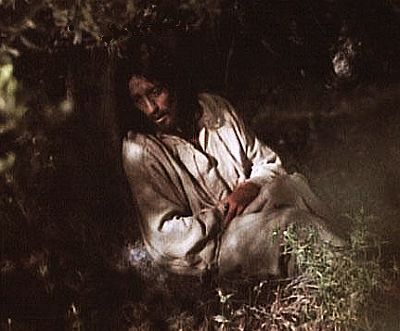Being non-denominational means I don't need any organised religion to do my thinking for me..;)
And therein lies your answer.
The segment of Christianity represented by this forum requires a particular and very strict view of biblical inerrancy. This view requires that all books and verses be harmonized. To admit the existence of disharmony would be contrary to the strict view of inerrancy held by this segment of Christianity.
Thus, those who hold this view must harmonize those verses suggesting that (1) Jesus is not divine at all; (2) Jesus is divine as the only begotten son but is not on the same level as the Father; and (3) Jesus is the divine second person of the Trinity (i.e., "Jesus is God"). To harmonize these three sets of verses virtually
requires that strict inerrantists opt for number (3) since numbers (1) and (2) can be explained away or subsumed within number (3), whereas number (3) cannot easily be subsumed within (1) or (2). Ergo, members of this segment of Christianity inevitably hold to the doctrine of the Trinity and the divinity of Jesus as the second person thereof.
To hold to the doctrine of the Trinity is like the "secret handshake" for being a member of this segment of Christianity (which is, of course, a very large segment). And even among those Christians without such a strict view of inerrancy, the doctrine is widely held - to such an extent that those who do not hold it, such as the Jehovah's Witnesses, are often accused of not being Christians at all solely on this basis. It often seems to me that those for whom the Trinity is a critical issue are more interested in defending what they regard as "doctrinal purity" than in examining what they really believe and why. "We believe the Trinity because ... well ... well ... because you
gotta believe it to be a Christian!"
Someone who thinks for himself - you and I - may see that the Trinity is not clearly set forth in the Bible at all and that the verses regarding the nature of Jesus (including those purporting to be from his own mouth) are all over the map. They cannot reasonably be harmonized. I and apparently you are not interested in being card-carrying members of any particular segment of Christianity or in what someone else thinks constitutes "doctrinal purity." I am interested only in what my own experiences, observations, studies and intuition tell me is most likely to be true and in what I am constitutionally capable of believing.
The fact is, the nature of Jesus was one of the raging debates of early Christianity. The fact is, the Trinity is a heavily negotiated, man-made doctrine. It emerged as the "winner" after a long process of debate and political intrigue. It may well be the best approximation of the actual nature of God (I don't happen to think so, but it may be). Authors such as Larry Hurtado have shown that the divinity of Jesus was one of the earliest Christian doctrines, but "divine" does not inevitably mean "one member of a triune godhead." It is entirely possible (I am not promoting this) that Jesus did not exist at all before the Incarnation and is "divine" only in the sense of having been fathered by the Holy Spirit.
I happen to believe that if God were a triune God and we were supposed to worship Jesus as the second person of the godhead, these facts would have been made
far more clear in the Bible than they actually are and would have appeared
far more clearly in the earliest Christian writings than they actually do. My best understanding of the gospels is similar to yours. Notwithstanding the words placed in his mouth, notably in the Gospel of John, I believe on the basis of verses such as the ones you cite that the real Jesus might have been aghast at any notion he was the second person of a Trinity. I don't "object" to the Trinity as a useful way of "thinking about" God and Jesus, but I have great doubt that it is ontologically true and certainly don't believe that holding the doctrine is essential to being a Christian.
The reason I don't post here anymore is that any attempt at discussion between a Christian who thinks for himself and a group of Christians who define themselves (and the Christian faith) by reference to some creed of orthodoxy is essentially futile. Jesus' question "“But who do you say that I am?” (Matt. 16:15, NASB) is one that I believe each person must answer for himself or herself.

